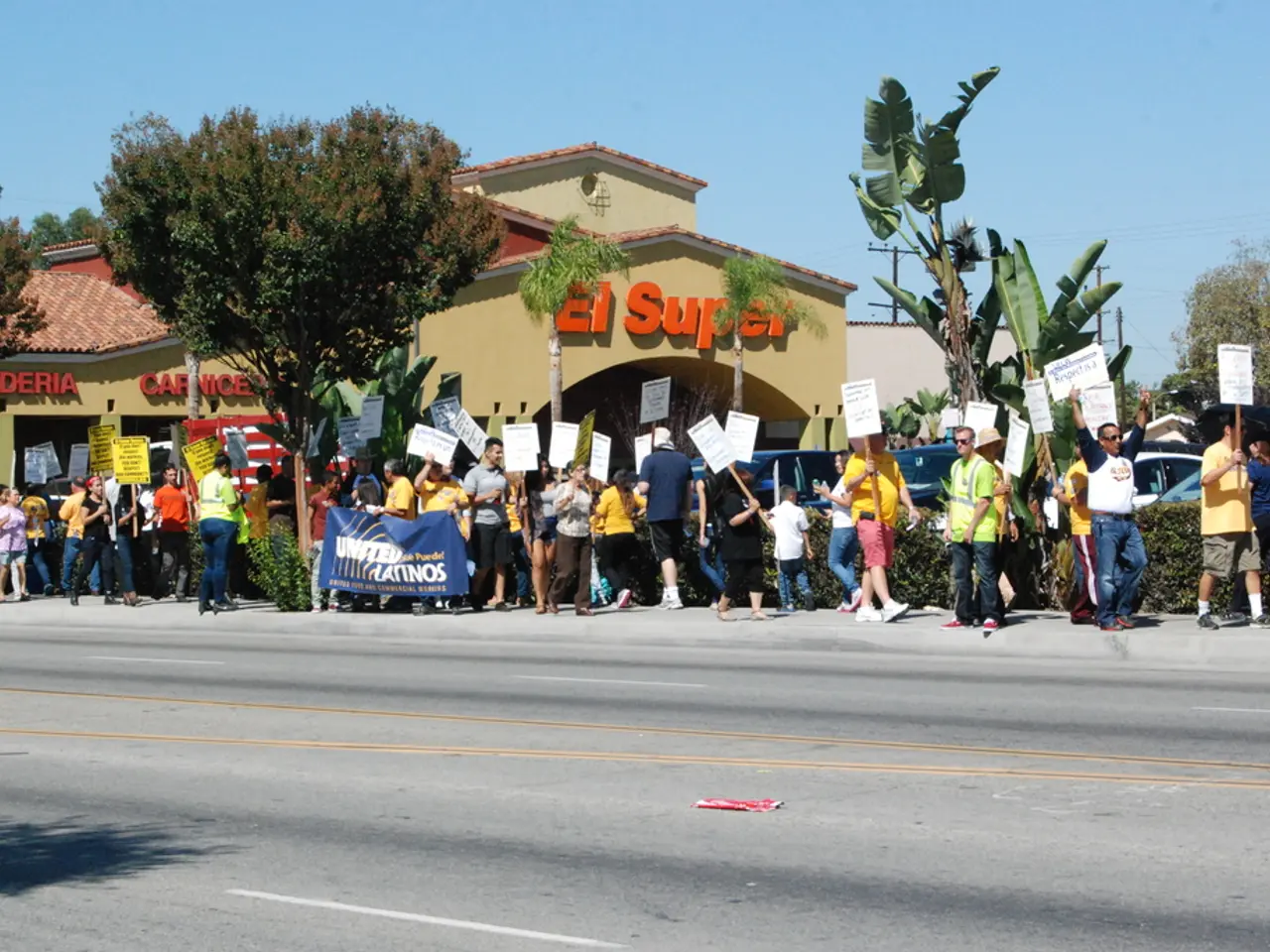Throngs of supporters acclaim Senator Ruben Gallego during Democrats' counteroffensive against Trump's tax legislation proposal.
In recent weeks, the Republican-backed "One Big Beautiful Bill" (OBBA), which permanently extends the 2017 Trump tax cuts, has become a focal point of political opposition, particularly within the Democratic Party and among independent voters.
Senator Ruben Gallego held a town hall meeting in Davenport, Iowa, where he criticized the Republican-backed tax bill signed by President Donald Trump. The meeting, held in Rep. Mariannette Miller-Meeks' 1st Congressional District, one of the most competitive in the nation in the past three congressional elections, was attended by hundreds of people who cheered Gallego.
Ann Ashburn, a retired executive, drove 70 miles to confront Rep. Mike Flood about the tax bill. Ashburn learned about Flood's town hall meeting through an Omaha-area Democratic group called Blue Dot. Similarly, Pete Wernimont, a Democrat from Waterloo, attended Gallego's town hall meeting and drove 140 miles to do so.
Democrats are using the bill as a rallying point by highlighting its perceived regressiveness and its rollback of Biden-era policies. Alexandra Salter, a physicians assistant from Davenport, attended Gallego's town hall meeting and stated that the tax bill will hurt health care. New York Rep. Alexandria Ocasio-Cortez has been making stops in Republican districts decrying the legislation, while Senator Bernie Sanders is scheduled to hold rallies in Republican-held House districts in North Carolina. Sanders plans to focus on Medicaid cuts and their impact on rural hospitals.
The bill's provisions include substantial cuts to the health care program, with work requirements imposed for many receiving aid. The cuts are seen by Democrats as a threat to safety nets and green energy programs. However, Republicans defend the OBBA as preventing a more than $4 trillion tax increase by making the 2017 tax cuts permanent and adding additional relief for families and businesses.
Public opinion polls reveal that support for the bill is highly polarized along partisan lines. About 60% of Republicans approve of it, while a large majority of Democrats oppose it. Two-thirds of U.S. adults expect the new law will help the rich, according to a poll from The Associated Press-NORC Center for Public Affairs Research.
As the 2022 midterm elections approach, Democrats are leveraging opposition to the OBBA to increase enthusiasm among their base by portraying the bill as regressive and out of step with working- and middle-class interests. Republicans, on the other hand, emphasize economic growth and tax stability achieved by making the cuts permanent. The approach reflects and reinforces a deeply partisan divide on the legislation.
- In Seattle, a General News discussion centered around the OBBA, highlighting concerns from Democrats and independent voters about its perceived impact on health care.
- Alex Johnson, a Seattle resident, participated in a demonstration organized by a local group, voicing disapproval of the tax bill's projected effect on Medicaid and rural hospitals.
- Meanwhile, Republican representatives have been defending the policy-and-legislation, arguing that it prevents a significant tax increase and ensures economic growth and tax stability for families and businesses.





